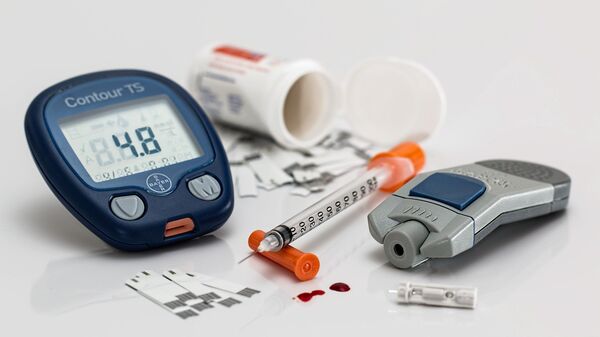The study also found that 1 in 5 patients with both diabetes and COVID-19 end up being intubated and mechanically ventilated within a week of being hospitalized. The study was based on 1,317 patients who were admitted to 53 public and private French hospitals between March 10 and March 31. Two-thirds of the subjects were men.
Eighty-nine percent of the patients in the study had type 2 diabetes, while only 3% had type 1 diabetes. Type 2 diabetes, a condition in which a patient’s body doesn’t respond to the hormone insulin properly, is more common in the US than Type 1 diabetes, in which a person’s pancreas cannot produce much insulin, if any.
The researchers also observed microvascular complications in the eyes, kidneys and nerves of 47% of the patients in the study. Macrovascular complications related to the arteries in the heart, brain and legs were also found in 41% of the subjects. Having respiratory conditions like obstructive sleep apnoea and shortness of breath also tripled the risk of death by day seven in the hospital.
The likelihood of microvascular and macrovascular complications more than doubled the risk of death by day seven of hospitalization for the patients. In addition, patients aged 75 or older were 14 times more likely to die than patients under the age of 55.
The researchers also concluded that insulin and other treatments for changing blood sugar should be continued in COVID-19 patients with diabetes, as they did not seem to have an adverse effect.
In addition, the researchers noted that increased body mass index (BMI), which is a ratio of height to weight, was found to be “associated with both increased risk of needing mechanical ventilation and with increased risk of death.
"The risk factors for severe form of COVID-19 are identical to those found in the general population: age and BMI,” the authors in the study wrote.
"Elderly populations with long-term diabetes with advanced diabetic complications and/or treated obstructive sleep apnoea were particularly at risk of early death, and might require specific management to avoid infection with the novel coronavirus. BMI also appears as an independent prognostic factor for COVID-19 severity in the population living with diabetes requiring hospital admission. The link between obesity and COVID-19 requires further study,” the authors added.

